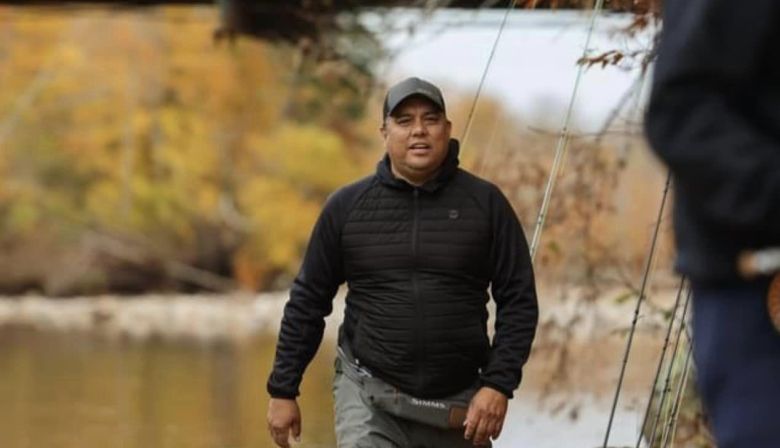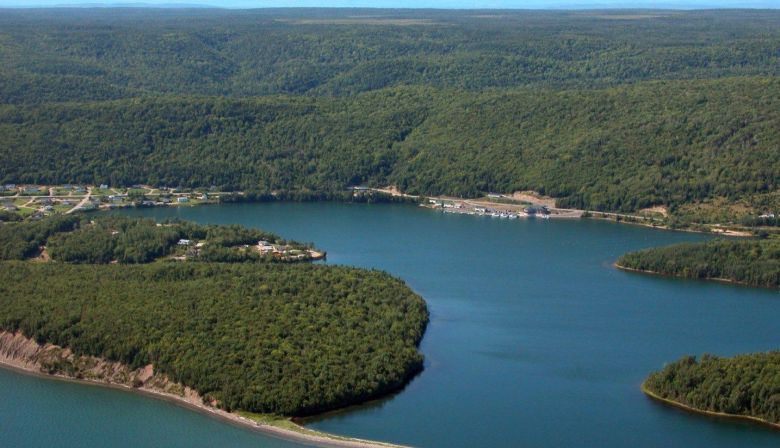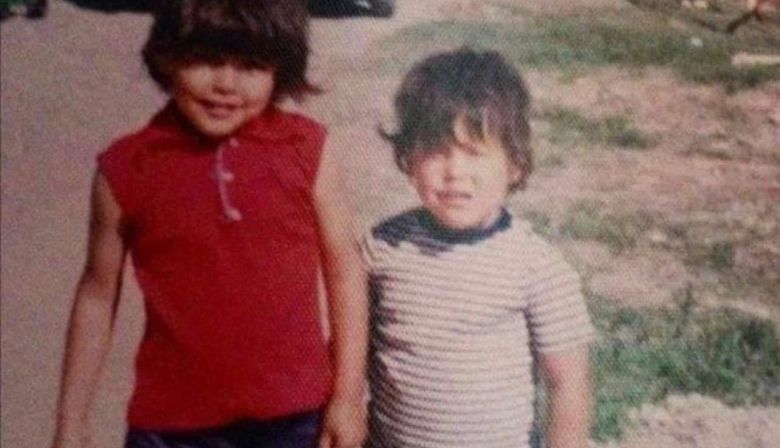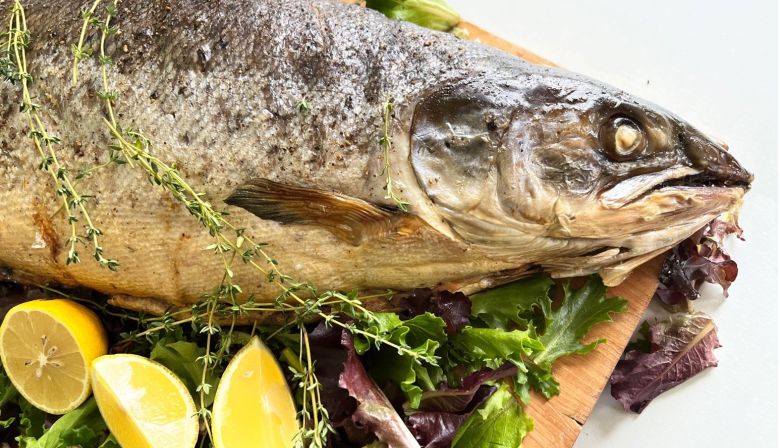
Subscribe & stay up-to-date with ASF


ASF: Tell me about yourself. Where are you from and what do you do?
Kyle: My name is Kyle Denny and I’m from Eskasoni First Nation. It is the largest Mi’kmaq community in the world, with around 5,000 residents.
I am married with five children and 4 grandchildren. I work for the Unama’ki Institute of Natural Resources (UINR), and I work on many different projects, partnering up with other organizations like the Nova Scotia Salmon Association to help with decision-making.
One of my first projects was building a curriculum module to teach First Nations students about conservation and Netukulimk, the way of respecting nature and not taking more than you need. My background is in education – I’ve done a lot of strategic planning in education where I was a student success coordinator and a school improvement coordinator.
I am passionate about salmon, so I was excited when ASF approached me to help with strategic planning. ASF wanted to include First Nation’s perspective while developing the Wild Salmon Watersheds program, and I said you can’t have just me because I don’t speak for all First Nations people; we need to have somebody going into the communities to have training meetings and develop strategies from the bottom up – that’s how we get a collective voice. So, after a few conversations, I was hired to do that as an Indigenous advisor with ASF.

ASF: I know one way you connect with salmon is through fly fishing. Could you talk a bit about how you started fly fishing and who your mentors were
Kyle: I was always fishing when I was young. Everybody had a rod. Eskasoni is on the Bras d’Or Lakes, so we grew up fishing trout and cod. It was part of our life; always fishing in the spring and the fall every year since I can remember.
My father passed away when I was only five years old, but I still have memories of fishing with him as a small child. I grew up in that environment of always being outdoors fishing. I got married in 1999 and then when I had a young family, I wanted to teach my kids how I grew up. So, I began fishing more again.
My stepfather introduced me to fly fishing around 2000. The first time I went fly fishing was at Middle River. One day, I end up in a fly shop in Sydney and I’m looking at rods and the owner of the shop told me that I should get into salmon fly fishing.
I bought all the equipment then and there, and the owner gave me directions and that’s how it began. I didn’t know what I was doing, and I didn’t catch anything in my first year on the river.
I fished a lot that second year and I put a lot more days in, and then in early September, I caught my first Atlantic Salmon. I enjoyed every single minute of being out there. I was more of a sponge than a fisherman, just listening to other people’s stories on the river.
All that fishing led me to this type of work and I’m a lot happier now. I guess it’s part of who I am.

ASF: Do you have a special fishing story that you would like to share?
Kyle: Yes. One year, not too long ago, I got a call around one in the afternoon from an elder telling me that there were some sort of ceremony going on in Cape Breton and that he needs a fish for it. I told him I would try my best. When I got to the river, I spoke to the salmon, just as I’m talking to you now and I said, “If there’s a salmon out here that wants to sacrifice yourself, come to me now.”.
I had an idea of what fly I was going to use, but when I opened my box, there was a different fly out of place, lying there, so I thought to myself that it’s meant to be. So, I cast out and not two or three casts later, I hooked one and landed it. Then I called the elder up to tell him that I got his salmon for him.
This was probably the most spiritual experience I’ve ever had with an Atlantic salmon, and it was so wonderful for me to not only practice my inherent right to harvest, but to be doing it for an elder for the educational purpose of a ceremony. I feel like the salmon gave its life to me because I had just asked the river for it. It was so awesome.

ASF: How do you see this Indigenous advisor role guiding conservation work?
Kyle: I want to reach out to communities and get their input and then bring that to the larger committee. It will be good to gather information from all the Indigenous communities throughout the Maritimes to make sure that we’re as effective as we can be and focus on the big picture. I think in the First Nations communities we can gather input to have a collective voice. We will be stronger as a community network working together.
ASF: Atlantic salmon are culturally significant for both Indigenous and non-Indigenous communities. Do you think there are shared values between the two groups?
Kyle: There are some similarities and differences but there is concern from everybody whether they’re Indigenous or not – everybody is concerned with the salmon. There is a lot of effort on every level with every cultural group here in Unama’ki, and throughout the rest of the Maritimes. Never in history were people working collectively until now. Everyone was doing their own thing but not sharing the work. It’s important to share knowledge and learn about what works and doesn’t work. I think there is a mutual respect and shared love for nature.
ASF: What’s the thing for conservation organizations and other environmental groups to know when pursuing projects with Indigenous communities or Indigenous organizations? How can we make sure that these are successful partnerships?
Kyle: I think one of the biggest things for me is that for anything to work, or for any meaningful partnerships, you can’t have tokenism with First Nations. For example, I can’t just jump on a meeting and be a collective voice for Indigenous peoples. I have my own views and opinions, but I can’t speak for all the different people and communities. We need to gather key people from all the communities to properly inform groups and committees on decision-making.
We must be equals. I feel like we have been moving in the right direction, like opening meetings up with a Mi’kmaq welcome and recognizing that we’re on traditional and unceded lands. We need to continue to use the two-eyed seeing approach where non-Indigenous people respect local, traditional knowledge, and us First Nations need to respect Western science too. You can’t have on without the other – they go hand in hand.
ASF: Thank you, Kyle. We are delighted to have you on the ASF team!